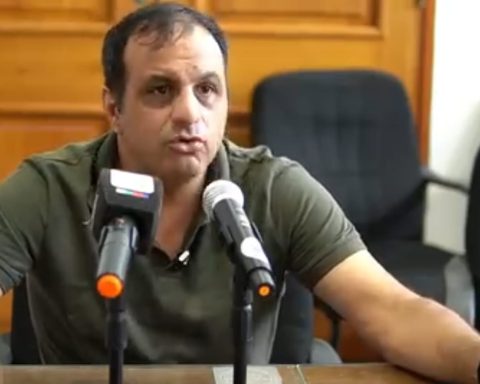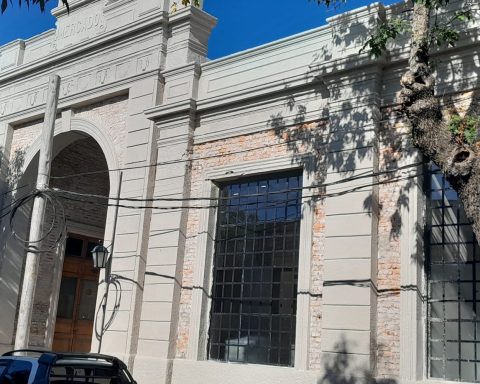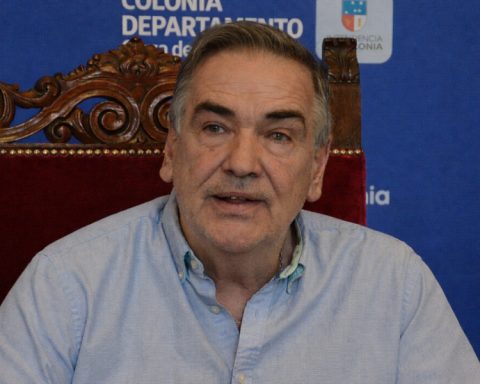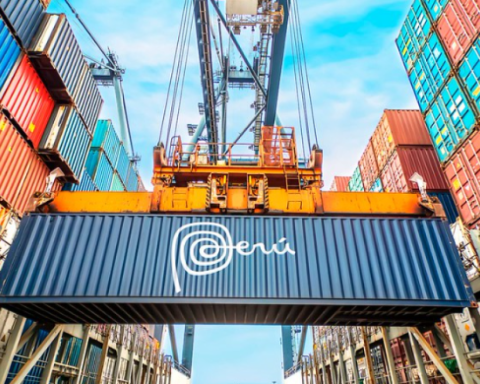Martín Litwak is an expert in asset structuring and preservation. He is also president of The 1841 Foundation, which this year released the first edition of the Index of Tax Hells. In that report, Uruguay was the second best positioned in the region. For the qualification, the fiscal pressure of the country and the institutional quality are taken into account.
Litwak highlights the country’s tax position to attract tax residents, although he believes that bureaucratic aspects should be improved. He maintains that Uruguay still maintains characteristics that bring it closer to a tax haven and, moreover, he does not see it as a negative aspect. “Uruguay should lower taxes and try to see what other tax havens do,” he said. Below is a summary of the interview he conducted with The Observer.
What would be the definition of tax hell?
Essentially it is a country, a jurisdiction, that combines two things. On the one hand, a high fiscal pressure, a high fiscal voracity, a harassment of the tax payer. This combined with a State that does not have a great institutional quality. There are countries with high taxes that work well. I am not the one to tell Denmark or Germany to lower their taxes. In fact, we at the foundation do not promote low taxes, we propose tax competition and that each country has the right and freedom to set the tax they want. What makes tax hell is those two things at the same time. On the one hand, very high taxes and on the other there is no legal or physical security. This means that people not only suffer when paying taxes, but also have to replicate a lot of State roles through private providers. If you go deeper there are four types of countries. Some with low taxes and that work well, which are tax havens. Others with high taxes that work well, like many Europeans. Countries with low taxes that function poorly, which are called failed states. In that group there are many Africans; You don’t pay but you don’t have anything. And then there is the worst category: where you pay for good but receive nothing. That is tax hell.
Uruguay was second in the index among the countries of the region. What can be highlighted about the country?
Uruguay has two very positive things when compared to the region, and even globally. A first issue is that it still has a largely territorial tax system. In other words, for assets abroad or activity abroad you pay quite little. That makes it very competitive in tax terms and makes a lot of people come to live here. To this is added an institutional quality that for Latin America is outstanding. Along with Uruguay are Panama and Costa Rica as countries with this degree of legal certainty. with state policies. With government changes that are hardly detected in the individual’s daily life. Uruguay meets its debts, it does not confiscate the money from its savers. Think of Argentina. One thing is the default against the third, in the credits. People sometimes don’t remember that Argentina kept people’s savings five times. That makes the right to property super weak, something that would be unimaginable here.
Ines Guimaraens
martin litwak
What aspects could be improved, what would be the weak points of the country?
It is not so much the legal regime, which is quite good. It’s more in the bureaucracy. It is great that there is a regime to attract tax residents. But why don’t you make the process easier? Uruguay has a bureaucracy that, in some respects, is unnecessary. But I say it again, it is in a much better situation than the rest of the region.
As an expert in wealth structuring, what would you recommend to a client? What kind of country? One with high taxes, as I said, that works well, or another that is more lax in tax terms?
When I talk to a client, the first thing I ask them is what they want to protect. A client in Argentina is very concerned about legal uncertainty. One in the United States for inheritance issues and a client in Mexico is concerned about the security issue that exists with drug traffickers. A person who has a life with a certain characteristic may be concerned about a matter of family quarrels. So, depending on what you want to protect, there are different tools. They range from a simple will, if the intention is to leave things in order, to international models. You have to choose: I’m going to Uruguay, Spain, the United States or the Bahamas. Advice goes through trying to provide peace of mind. There are people who build a society and stay where they are. Others, a foundation. Some move to another country. On the subject of planning, year after year, you have to review what you have, see if any law changes. If you are looking for privacy, be aware of any new exchange of information. If there are inheritance issues, see if any regulations have changed. It’s like when you buy a car. If I have one, I can’t not take it to maintenance. Once in a while you have to check it. Today international moving is something much more common than before. 50 years ago, a family was born in Brazil and died in Brazil. Today it is very difficult for there to be a family of a certain purchasing power that does not have members scattered throughout the world and assets scattered throughout the world.
Does age change the profile of the investor or the person who wants to take care of their assets?
There are more differences regarding the investment strategy. There are times when the young person is more risky with the investments he makes. When you’re older, with less time left, he tends to be more careful with risk, more conservative. But they are like very general rules. I would tell you that it changes much more by geography. For example, Arab families are much more risky in their investments than Latin American ones. With estates that go up and down wildly. There are cultural issues in that, but the tools are occasionally the same. They have to do with planning objectives. Back: I want legal certainty. Well, let’s move to the country. And then there you start investing as you want. The inversion does not usually affect the shell. You have general tools that are used and then others that the country you are going to gives you. In the case of Uruguay it is the tax holiday, which we all know. It’s a much stronger planning tool than any structure I can put together.
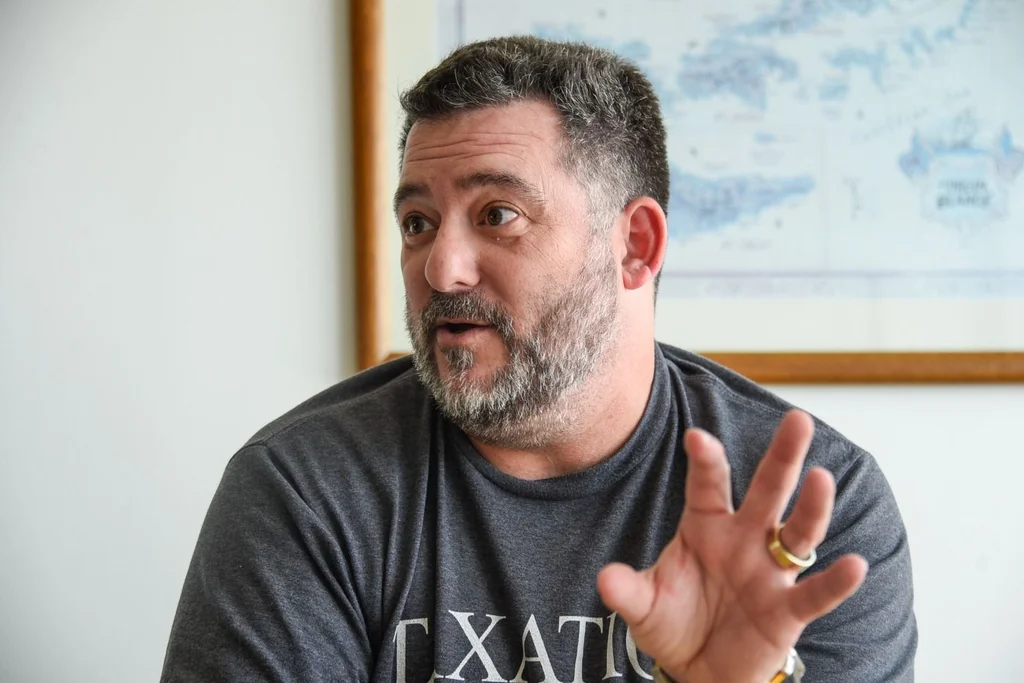
Ines Guimaraens
martin litwak
Do you recommend Uruguay as a safe country to protect assets?
Yes, definitely. I lived 10 years here. There is this that she said before about the bureaucracy. It can be improved and it is also a paradise from many points of view, especially for foreigners. There is something that I always say, I even said it to the people of the current government. After years of population growth of a certain socioeconomic level, which caused the Uruguayan market to grow, I believe it is time to lower taxes for Uruguayan tax residents. Because so far the benefits are all for those who come new and it’s great. But I think there has come a point where a tax reform should be introduced that lowers the tax burden a bit for those who have always lived here and pay taxes here.
Is the profile of the Uruguayan investor different from the rest?
Any generalization is false, but Uruguayan clients are more conservative from every point of view. Of the investment and the structures that are encouraged to do. And it is logical, because they are not so attacked by the State, they are little attacked. A client from Argentina or Venezuela, who is very attacked, takes more risks because he does not have much to lose.
Does that more conservative stance notice you both on a personal and general level?
I remember when Nicolás Sarkozy (former French president) said that Uruguay was a tax haven in 2011. I wrote a column that said: Thank you, Mr. President. I said yes, that indeed Uruguay was a tax haven. And that there was nothing wrong with it. I criticize in Uruguay the same as in Panama: if you don’t accept what you are, they mark it from outside. So I think that Uruguay should have accepted that role and said: the problem is not us, it is the tax systems. The problem is the countries that expel people and then come to Uruguay. Uruguay was able to say: we do provide a paradisiacal place to live from every point of view, from the security of services, stability and taxes. What’s wrong with that? There’s nothing wrong; could have been a mark. Here the clothes are torn. I understand those who are against. But those who are in favor say it in private and in public they also tear their clothes. I think Uruguay should lower taxes and try to see what other tax havens do. A little more competitive banking system, a little stronger capital market. There is much to do in a region where the country has held steady, or improved, and the rest has sunk. My feeling was always that being a little more active, I’m not saying rowdy, but a little more active, there would be a much greater flow of people coming to live here. Much more foreign investment. Uruguay has to believe a little in Uruguay. There are smaller countries that are much more successful. Take Hong Kong, Taiwan. Uruguay could well have become the Singapore of Latin America.
Do you still think that Uruguay is a tax haven?
There are measures that were taken that go against that, but it still has some characteristics of a tax haven. Legal certainty, respect for private property. Where it strayed the furthest was in privacy protection. Today Uruguay is a more transparent country than others. And it was not necessary.


